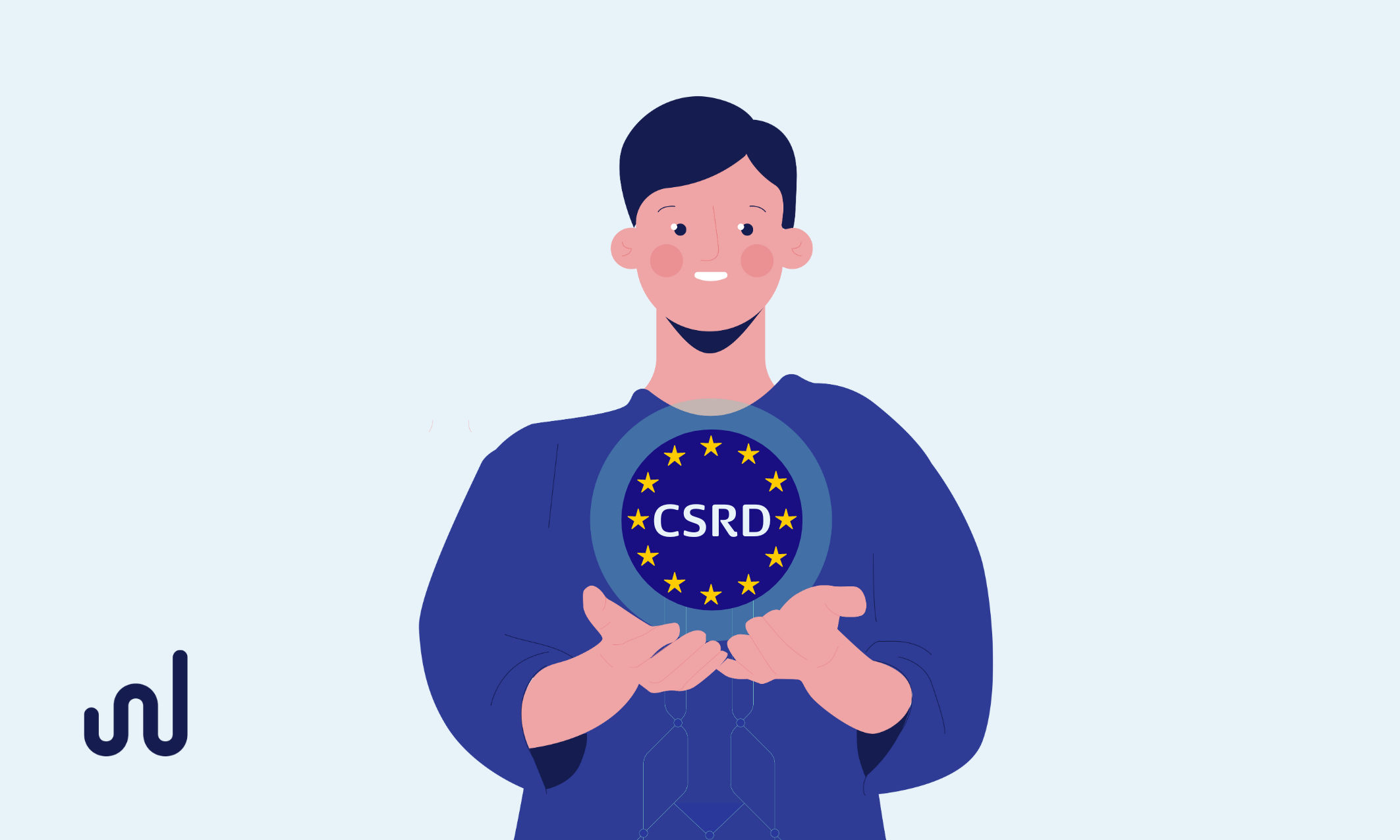Leveraging CSRD to Raise Momentum for Employee Experience Management
As HR professionals, we are aware of the importance of improving the experience of the employees in our organisations. We have managed to deliver this message to our leadership teams: international research has repeatedly shown that CEOs want to give priority to a better employee experience and sustainable work. But budgets can be limiting, conflicting priorities arise, and up until recently, the market for solutions was referred to as ‘immature’.
So how does the new European CSRD help us to create more momentum for EX-programs and related people initiatives?
What is the CSRD and who does it apply to?
The CSRD is the new European Corporate Sustainability Reporting Directive (CSRD). Its predecessor, the Non-Financial Reporting Directive (NFRD), applied to public interest entities and listed companies. The CSRD is wider in scope and reporting requirements. There are mandatory reporting requirements on listed companies, large companies, and SMEs. The requirements are based on the European Sustainability Reporting Standards (ESRS). One pillar of these standards 'Social' is of particular relevance to HR professionals and their companies as it provides prescriptive details of measures to be implemented for your own workforce – these are mandatory.

The directive also provides for mandatory audits and an assurance regime to ensure the reliability of the data presented. All EU Member States must transpose the directive into national law by June this year, and companies must commence reporting in 2025.
Between 2024 and 2029, an estimated 50,000 European companies need to start reporting about their sustainability policies. The CSRD even applies to non-EU companies if they generate more than €150 million annually in the EU market.
What is the goal of the CSRD?
The CSRD helps investors, consumers, and other stakeholders evaluate companies’ sustainability performance. Companies are required to detail their policies regarding sustainability and outline their due diligence for tracking and enforcing these policies. Reporting can cover environmental protection, treatment of employees, management and board diversity, social responsibility, and other aspects of sustainability, as described in the 12 ESRS (two cross-cutting, one governance, five environmental, and four social standards).
How can Welliba help organisations meet the requirements of the CSRD?
Welliba provides AI-driven technology that can monitor employee experience, engagement levels, psychosocial risk, wellbeing, and other people-related metrics. The goal is to help employees and managers to thrive at work. We can support a wide range of people programs, many of which become even more important as a result of the CSRD. The CSRD is very prescriptive and its detailed disclosure requirements have direct relevance to the various solutions that Welliba offers. Welliba’s solution suites can support initiatives regarding employee experience, employee engagement, psychosocial risk assessment, health, safety, and wellbeing, diversity and inclusion, talent and leadership development, and more.
How important is sustainable work for employees in the CSRD?
Organisations have to meet the requirements described in the 12 European Sustainability Common Reporting Standards (ESRS). Standard ESRS S01 focuses entirely on organisations’ own workforces. It requires disclosures including processes for engaging with own workers and workers’ representatives about impacts; processes to remediate negative impacts and channels for own workers to raise concerns; taking action on material impacts on own workforce, and approaches to mitigating material risks and pursuing material opportunities. Diversity metrics, training and skills development metrics, health and safety metrics, and work-life balance metrics are also explicitly included. ESRS standards apply to both employees and contractors.
How does Welliba help employees thrive?
Our employee experience management system, EX+, was developed after a thorough analysis of shortcomings in other technologies in the market. It focuses on innovative measurement and reporting. An essential part of the new approach is that we give employees ownership of their own experience and allow them to cooperate with their managers and their organisation’s central teams (HR leaders, talent development managers, health and wellbeing specialists). All stakeholders get instant feedback on what is measured and how to impact future people and business outcomes. Personalisation is enabled by AI, providing each employee with advice (and resources) to improve their personal experience at work while protecting their privacy.
I would like to know more. What can I do?
You can start by reading some of our most popular papers (see links below). They will provide you with new insights and practical ideas to meet the requirements of the CSRD and ESRS S01, by making working in your organisation more sustainable.
- Four Ways to Apply Recent Advancements in Measuring & Managing Employee Experience to Engagement Programmes
- Accenture Case Study | Our award-winning work with Accenture on managing change
- Making DE&I Initiatives Personal: Using Technology to Deliver More Impact
- Future Proof Your Workforce | The Power of Predictive Psychosocial Risk Assessment with Welliba EX+
- Predicting Business Metrics with the Welliba EX Index
Our other papers can be downloaded here.
The CSRD can help to create urgency to make employees thrive
We believe that the CSRD offers HR a unique opportunity to create new momentum for what many CEOs have identified as important priorities for their organisations: increasing productivity and employee experience, attracting new talent, developing current employees, reducing turnover, and improving communication and trust.
Please contact us if you would like to discuss how we can help you and your organisation to make a difference for your people.
https://assets.ey.com/content/dam/ey-sites/ey-com/en_gl/topics/workforce/ey-closing-the-employee-experience-gap.pdf
https://finance.ec.europa.eu/capital-markets-union-and-financial-markets/company-reporting-and-auditing/company-reporting/corporate-sustainability-reporting_en
https://www.sweep.net/insights/understanding-the-scope-of-the-csrd-who-needs-to-comply/
https://www.ibm.com/topics/csrd








